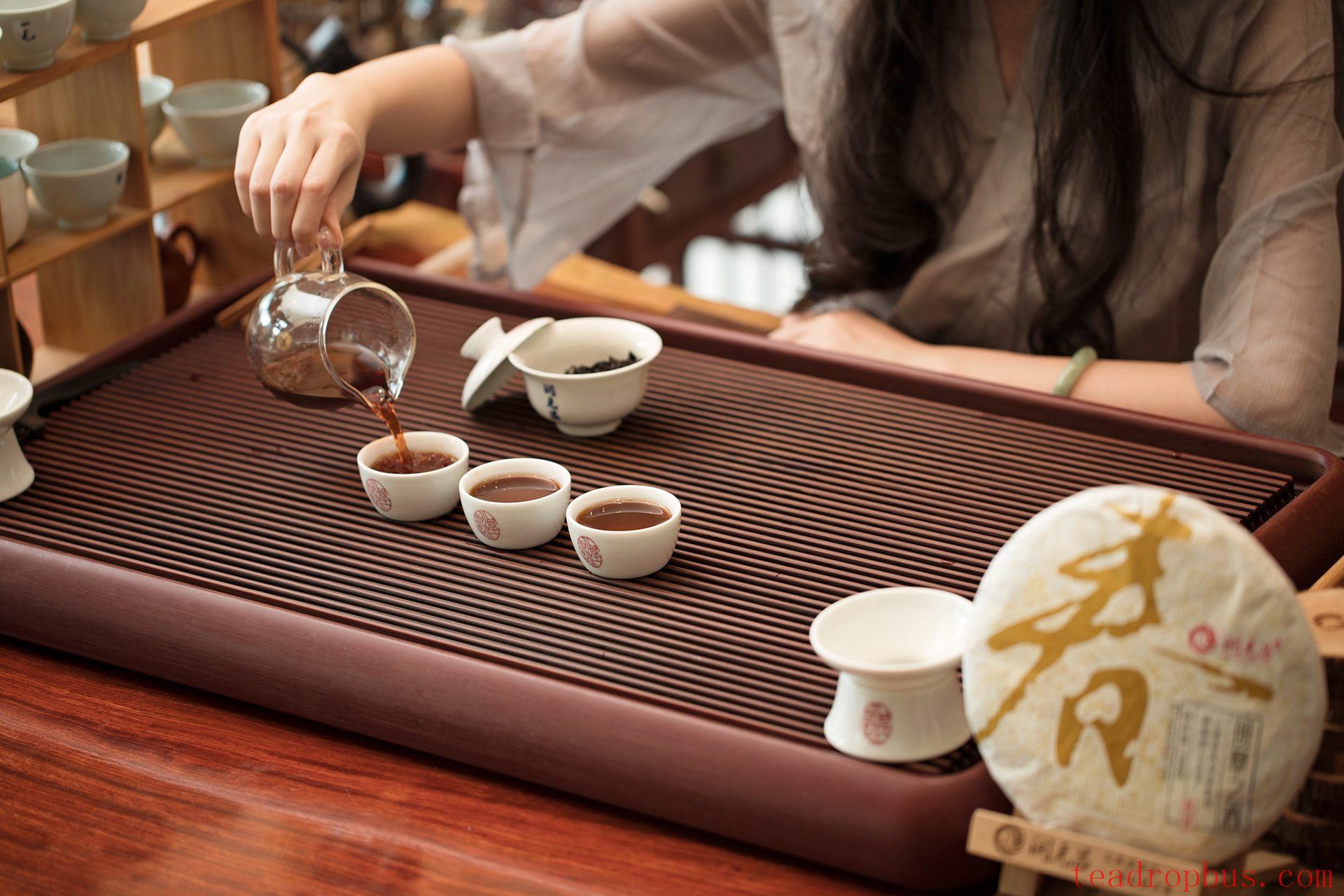Understanding Dahongpao Tea
Dahongpao tea is a renowned Wuyi rock tea produced in Wuyi Mountain, Fujian Province. It is famous for its unique flavor and rich history. The leaves of Dahongpao are dark in color, curled with a glossy finish. The tea liquor is bright red, full-bodied, with a distinctive roasted aroma and a sweet aftertaste.
Preparations
To brew a good pot of Dahongpao tea, the following utensils are needed:
- Purple clay pot or porcelain Gaiwan
- Electric kettle or other temperature-controlled heating device
- Tea pitcher and tasting cups
brewing Steps
The process of brewing Dahongpao tea requires attention to water temperature and Steeping time to fully release the aroma and Taste of the tea.
Step One: Warming the Utensils
Rinse the tea utensils (such as a purple clay pot or gaiwan) with hot water. This evenly heats the utensils, helping to better bring out the aroma of the tea.

(Image source: Internet, delete upon request)
Step Two: Placing the Tea
Depending on the size of the utensil, generally place 5-7 grams of tea into it. For beginners, start with less tea and gradually increase to find the most suitable concentration.
Step Three: Pre-infusion
Pour hot water (90-95°C) into the utensil and quickly pour it out. This step is called “pre-infusion” and can wash away dust from the surface of the tea leaves while awakening their aroma.
Step Four: Brewing
Refill the utensil with hot water, cover it, and steep for 20-30 seconds before pouring the tea liquor into the tea pitcher and then distributing it into tasting cups. The first infusion can be shorter, and subsequent infusions should be extended by 10-20 seconds each time.
Step Five: Multiple Infusions
Dahongpao tea can be infused multiple times, with each infusion offering a different taste experience. The first infusion is rich and has a roasted aroma; the second is smoother with a light fruity fragrance; the third and fourth infusions have a pronounced honey and floral aroma.
Brewing Techniques
To better enjoy Dahongpao tea, try the following techniques:
- Use purified water to avoid affecting the taste of the tea with impurities in the water.
- Control the water temperature between 90-95°C, which is the optimal brewing temperature for Dahongpao.
- Adjust the steeping time appropriately to avoid making the tea liquor bitter due to over-steeping.
Tasting Dahongpao
The tea liquor of Dahongpao is bright red, full-bodied, with a distinctive roasted aroma and a sweet aftertaste. Each infusion brings about changes in flavor, from a strong roasted aroma to a smooth fruity fragrance, and then to honey and floral aromas, leaving a lasting impression.
Through multiple infusions and careful tasting, you will discover the rich layers and deep essence of Dahongpao. This tea is not just a beverage but also a cultural experience worth savoring with your heart.
Conclusion
The method of brewing Dahongpao tea may seem simple, but it requires care and patience. Every detail affects the final taste of the tea. Through continuous practice and adjustment, you will surely brew a perfect cup of Dahongpao tea, enjoying its unique flavor and long-standing Tea culture.